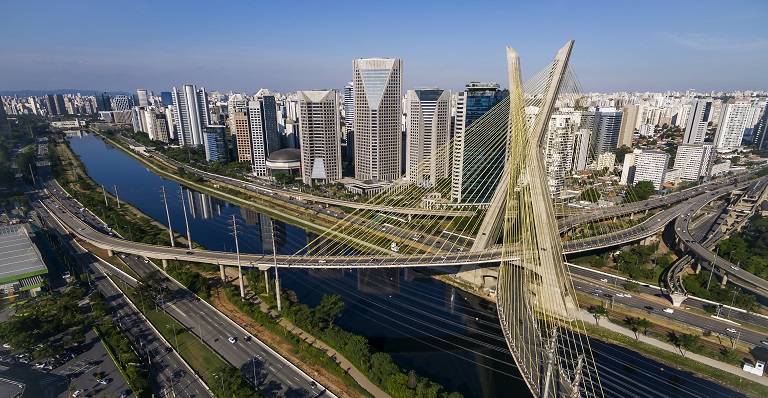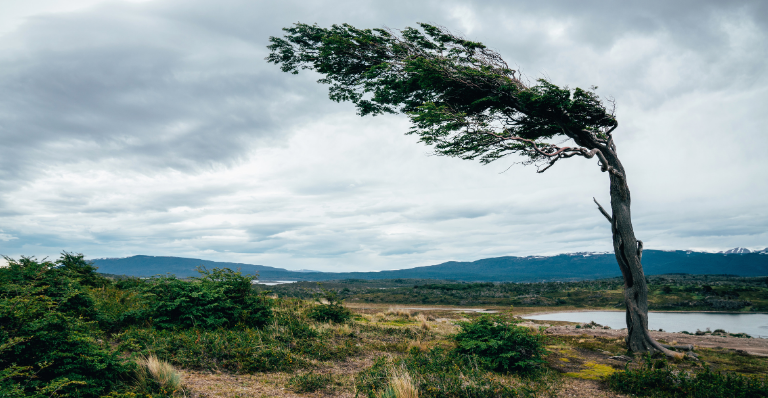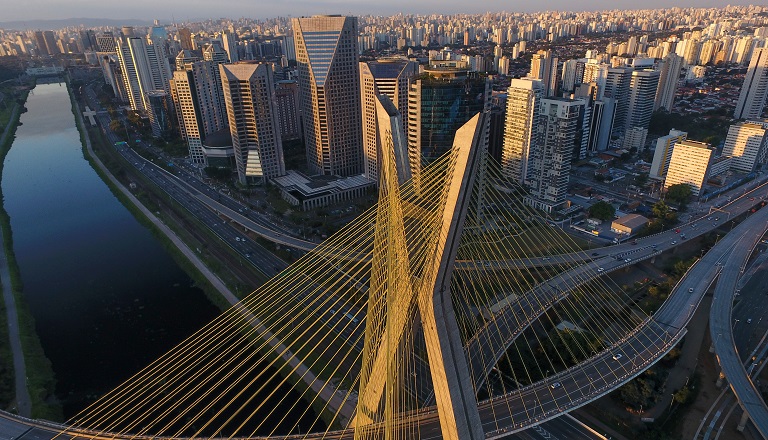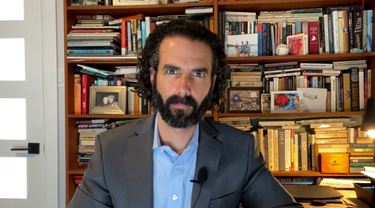
Brazil: A market to watch for Canadian exporters
Author details
Janet Wilson
Senior international trade writer
In this article:
Brazil is the largest country in South America, with a population of 215 million and an economy worth about US$2 trillion annually. Our two nations share strong commercial, diplomatic and investment relationships, and Brazil has become a market for many Canadian companies.
“Twenty years ago, Brazil’s economy was already the biggest on the continent,” says Daniel Benatuil, an Export Development Canada (EDC) senior economist with responsibility for Latin America.
“But since then, it’s really consolidated its dominant position in South America. It’s a diversified economy, with a broad industrial base and ample supplies of almost any commodity a business, or investor, could ask for. It’s an investment magnet and is becoming an exporting powerhouse,” Benatuil says.
Brazil and Canada: The relationship
Canadian companies have a lot to offer this vast country. “Brazil is Canada’s third-largest trade partner in the Americas after the United States and Mexico,” says Jorge Rave, EDC regional vice-president for Latin America and the Caribbean. “We shipped $13.3 billion worth of goods to Brazil in 2023—a 6% increase over 2022. And the exports are very diverse—from fertilizers to machinery parts and fuels.”
The outlook for Brazil’s economic development is positive. “The country does face some fiscal issues,” says Rave. “But the economy is showing several very encouraging trends—agriculture, for example, is an extremely important sector and is driving significant economic growth. The social security and labour reforms of the past few years are also beginning to bring results. The labour market is increasingly competitive, and Brazil has controlled inflation even while raising wages. For the longer term, it’s expected that annual growth will hover around 2%,” he says.
On the investment side, Benatuil expects that “economic growth, rising incomes and an expanding middle class will push the country to tackle the deficits in its social infrastructure—from health care to transportation,” he says, adding, “Brazil can’t finance these developmental needs from its own resources and will need substantial investments from abroad. This is where Canada could certainly step in.”
One thing that’s missing from our relationship is a free trade agreement (FTA). Canada’s path to securing one is through Mercosur, the South American free trade bloc, which includes Brazil.
“We’ve been negotiating an FTA with Mercosur for several years now, but the talks are presently suspended,” observes Benatuil. “In terms of affecting Canada’s trade and investment with Brazil, though, the lack of an FTA hasn’t had much effect so far.”

Opportunity sectors
The opportunities for Canadian exporters and investors are as diverse as Brazil’s economy. According to Monica Busch, EDC’s Business Development director, Brazil and Southern Cone, these include:
- Infrastructure: Brazil needs a great deal of equipment, services and investment for developing highways, airports, seaports, railways, water supply and sewage systems, and health-care infrastructure.
- Energy: Brazil has the largest electricity market in Latin America, generating more power than all other South American countries combined. Investment in the sector is expected to reach more than $100 billion by 2029, supporting projects for utility-scale generation, distributed generation and transmission and distribution networks.
Renewables, mainly hydropower, currently provide 83% of Brazil’s electrical needs. Over the next 10 years, new regulatory frameworks will support the development of sustainable energy systems such as green fuels and solar, hydrogen and offshore wind power. - Cleantech: This includes products and services for solid waste disposal, water and wastewater treatment, clean energy and other subsectors. These often overlap with infrastructure and energy needs, so companies looking for opportunities should pay attention to those sectors as well.
- Agri-business: The agri-business sector accounts for almost half of Brazil’s exports, contributing enormously to the domestic economy and the country’s international trade. Brazil is also emerging as a leader in sustainable agriculture practices. To further increase its competitiveness, it needs investment in innovative technology, advanced agricultural practices and enhanced workforce training. Canadian expertise could help meet these needs.
- Mining: Brazil has vast mineral resources and mining is a crucial sector of the economy. Along with huge amounts of iron ore, it produces gold, copper, nickel, bauxite and manganese, as well as other minerals vital to a global low-carbon economy.
Sustainable operations are an important current focus for the industry. One of its key objectives is improving the efficiency of its water and electricity use, as well as using more recycled materials and improving waste management. Canadian mining sector companies may find opportunities in environmental solutions, safety, logistics, digitalization and intelligent mining. - Digital technologies: Brazil had almost 182 million internet users in 2023, and the telecommunications market is expected to reach more than US$40 billion by 2028. Mobile phone usage is growing and market expansion will require infrastructure investment and service improvements.
On the IT (information technology) side, the greatest needs are in security, data management and artificial intelligence. Major users include the service sector, telecom, financial services, industry, commerce, government, oil and gas, and agriculture.
“These sectors will remain relevant for the next five to 10 years,” says Busch. “But there will also be new needs. I’d highlight environmental and climate-change mitigation services, agricultural technologies and energy optimization systems.
“Other new frontiers will be low-carbon hydrogen and biomethane. Brazil already has the cleanest energy matrix worldwide and is a destination for low-carbon energy investments, which should attract Canadian companies with related expertise,” she says.
You should also check out
With growing risks, Canadian companies face new challenges. EDC’s Global Economic Outlook offers insights to help you make better business decisions.
Market challenges
“The challenges and risks of operating in Brazil can be reduced by working with the right Brazilian partners,” says Busch. “They can help you navigate the tax and legal systems, plan logistics, provide local technical support and help bridge the language barrier.”
Busch says the main challenges include:
- Cost of doing business: Sometimes known as the “Brazil cost,” this is the overhead of navigating the country’s bureaucratic labyrinth such as business setup, import licensing, tax compliance and the requirements of local regulatory regimes. Working with an experienced Brazilian partner can help solve some of these problems and reduce compliance risks.
- Complex tax systems: Dealing with Brazil’s convoluted corporate tax system, with its many levies and high effective rates, can be challenging for Canadian companies with a presence in Brazil. Reforms have begun, but will take years to implement fully. Using local tax experts to help with corporate taxes is consequently a must.
For Canadian exporters, the import tax regime can also present barriers. “Import taxes are complex for both goods and services,” says Tanita Alexandridis, EDC senior advisor, International Business Advisory Services. “Brazil’s current regime involves federal, state and local taxes, plus customs duties and other fees applied to imports.”
The government has recently started simplifying the system. “But the changes will be phased in between 2026 and 2033,” says Alexandridis. “Consequently, your customers will need to track current and new taxes for years to come. While it’s typically the importer’s responsibility to deal with these levies, Canadian exporters should monitor what applies to their products, so they can calculate the final landed cost to their customers,” she says. - Challenging logistics: Brazil’s size and varied terrain can present nagging logistical obstacles, especially since so much of the national production is transported by truck on an underdeveloped road network. To avoid shipment delays, you should work with qualified logistics firms familiar with the country’s transport infrastructure and its hazards.
- Competition from local and foreign players: Brazil has a very diversified industrial base and some foreign companies have been active in the country for more than 50 years. They can be stiff competition for a newcomer, especially an unprepared one.
- Language barrier: Although most businesspeople speak English, the further you go from the major centres, the more difficult it is to find people who are comfortable speaking English or French. Having someone on your staff who can speak Portuguese would be a major advantage.
You should also check out
Expanding into this market? Read this insightful guide on the importance of operating your business in an economically, socially and environmentally responsible manner.
For current risk information about Brazil, refer to EDC’s Country Risk Quarterly, an interactive tool that provides data on about 50 markets.
Market entry
A Canadian company entering an overseas market for the first time needs to be well-prepared, and Brazil is no exception. Fernanda Custodio, EDC’s Business Development director, Brazil and Southern Cone, has the following advice:
- Be prepared: Learn in advance about Brazil’s market—its dynamics, business environment, competition and challenges. Attend local seminars, trade fairs and other events to obtain market knowledge. Be sure to have a well-articulated value proposition to attract the attention of prospective clients.
- Use available resources: There’s a strong support ecosystem in Brazil for Canadian companies. This includes organizations such as EDC, the Canadian Trade Commissioner Service, the Brazil-Canada Chamber of Commerce and provincial trade organizations. EDC encourages newcomers to use this ecosystem to help build a network and to find suitable partners and specialized services.
- Do careful due diligence: Always carry out thorough due diligence on potential customers, partners and advisors before entering into a business relationship with them. The support ecosystem described above can help you do this.
- Have a local presence: If you’re supplying goods to Brazilian buyers, you should have a local presence, either in the form of an affiliate or through a Brazilian partner. This is a prerequisite for success, since Brazilian buyers expect to have local on-demand service for maintenance, repair, training and other purposes.
- Provide comfortable payment terms: Most of your Brazilian customers will expect you to offer good credit and payment terms, and doing so, will help you compete in the market. If this might expose you to unacceptable payment risk, you can turn to EDC’s solutions such as Credit Insurance.
- Be patient: It’s very unusual to come out of a first meeting with a purchase order. Your Brazilian counterparts will want to get to know you before they consider doing business with you. Consequently, it usually takes a few meetings to build the relationship and trust that can lead to a contract.
- Prepare environmental, social, and governance (ESG) strategies: “Brazilian companies have high ESG (environmental, social, governance) standards,” says Santiago Ribadeneira, EDC senior environmental and social advisor. “This is partly because Europe is one of their biggest markets and Europe’s ESG requirements are quite rigorous. Consequently, if your company has strong ESG standards that can be incorporated into Brazilian products to be sold in Europe, potential Brazilian customers will be much more interested in doing business with you,” Ribadeneira says.
Practically speaking, this means that your company must have a very clear and comprehensive ESG strategy before going to Brazil—preferably one that you’ve already been using with data proving that it works. And since each of Brazil’s states develops its own ESG standards, your own ESG strategy may have to be adjusted, depending on what you sell and where you intend to sell it.
How EDC can help
If you need to know more about doing business in Brazil, talk to EDC. We can help you:
- Find the experts you need
- Set up a visit to the country
- Understand the culture and your Brazilian counterparts
- Do due diligence on your counterparts, their ESG status and their potential liabilities
- Check on the reputation of potential partners
- Identify regulations and laws that may apply to your exports or investments
You can also:
- Visit our Export Help Hub to explore the potential of growing your business.
- Explore our country and economic info pages for Brazil.
- Connect with targeted global companies through the EDC Business Connections Program.
And don’t forget to talk to our partners, the Canadian Trade Commissioner Service and the Brazil-Canada Chamber of Commerce.


















